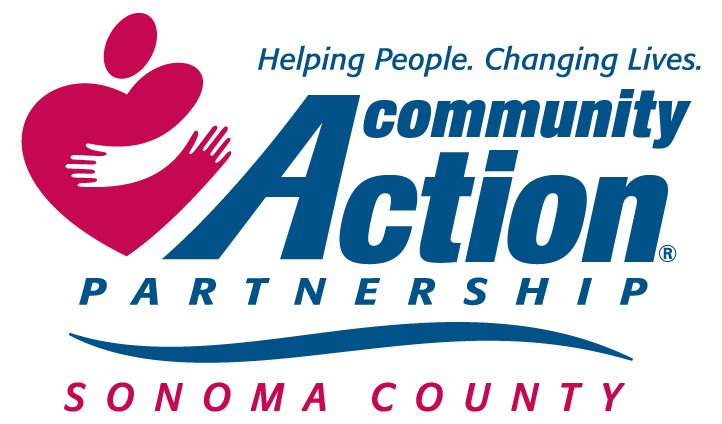Mobile Family Resource Center
Vision: All students and their families receive the support to help them in achieving academic, economic, and social success.
Purpose: The purpose of the CAP Mobile Family Resource Center (MFRC) is to provide support to the most vulnerable youth and their families to assist them in overcoming challenges that hinder success in school and in the community.
Program: The School-based MFRC has been the cornerstone for Community Action Partnership’s whole family approach strategy addressing student attendance and success in school. The program delivers support services to Santa Rosa students and their families living in poverty. Participating families often live in substandard housing and face emotional and social challenges. CAP’s goal is to strengthen families, helping them raise healthy and successful children and teenagers by working closely with teachers, counselors, administrators, and family to solve problems together. Parents gain the skills and resources necessary to raise healthy and successful children through:
- Building parental resilience;
- Healing from trauma;
- Increasing family social connections;
- Providing concrete support in times of need;
- Teaching effective parenting and child development practices;
- Strengthening the social and emotional competence of children, and
- Learning new skills to foster economic stability.
Challenges of Covid-19: Answering the unprecedented challenge of the Covid-19 pandemic, CAP’s MFRC has modified and built upon its successful family engagement programming and services. The pandemic has increased the tremendous stress on students and their families. We are particularly concerned with the high level of Covid-19 cases among Latinos in Sonoma County. The MFRC’s strength is in the bilingual and bicultural staff with extensive training and experience in proven and effective engagement strategies.
During the pandemic, the MFRC has focused on virtual family engagement, including virtual case management via telephone and Zoom family meetings, social-distance home visits, virtual workshops and parenting classes, and no/low touch family activities and
events. The MFRC staff will bring this newly minted experience to your district. The MFRC is prepared to deliver both school-based services and virtual services in partnership with schools.
School-based services: The MFRC school-based services will be delivered in partnership with a Santa Rosa elementary, middle, or high school. CAP has identified three potential schools that we believe could benefit from MFRC school-based services. MFRC staff would work with administrators or designated school staff to identify vulnerable students and families to receive student and family services. The MFRC strategies are designed to support youth and their families to improve attendance, improve academic behavior, improve student/family communication with school, provide referrals and resources, and to connect families to social supports offered through CAP’s Via Esperanza Family Resource Center and other CAP programming designed to strengthen families. Services may include:
Service:
Outcome:
Family Coaching virtual or in-person depending on health and safety guidelines.
Improved student school engagement. Development of student/family plan with goals and steps toward meeting school expectations. Engage parents as allies. Tracking of student/family progress towards goals. Improved family functioning.
Home Visiting (Social Distance)
Reconnect most vulnerable students to the learning environment. Engage parents as allies.
Student/family checks via phone
Improved child/teen well-being.
Student/Family Consultations
Improved student/family engagement. Improved student academic behavior. Engage parents as allies. Improved family communication and functioning.
Resource and referral for students and their families
Increased student and family available resources: behavioral health, food resources, clothing, housing, English classes, including CAP Sonoma’s Via Esperanza Family Resource Center
Family Financial Coaching (One-on-one coaching and Your Money Your Goals financial classes Via Esperanza)
Improved family economic status. Increase family assets. Improve family outcomes.
Virtual Resource Center: In response to the pandemic, CAP has engaged parents in virtual learning experiences including formal curriculum delivery that is typically delivered in a classroom setting. The Virtual Resource Center (VRC) is designed to engage parents/families using online distance learning techniques. This is accomplished through Zoom, telephone, and YouTube. The goal is to meet families where they are and with the technology that works for them.
Service:
Outcome:
Padres Unidos Parent Training in Spanish (one day per week for 16 weeks) includes parent and youth consultations over 16 weeks.
Improved family communication and functioning. Decreased student behavior issues in school and community. Increased family management of behavior issues/problems. Engage parents as allies.
Virtual Family Workshops (Spanish and English) with topics (not limited to) including developing routines for children, family values, positive parenting, improving attendance, supporting distance learning, mental health and youth service agency panel/fair, communication, family decision-making, improving grades and behavior, drug prevention, youth dating/healthy behaviors, school success, family advocacy and workshops by design (in partnership with schools and parents).
Improved family communication and functioning. Improved family management of student academic and social behaviors.
Virtual Parent/Family (community resident) Leadership series. May include: communication, leadership, outreach, community engagement, understanding policy, neighborhood/community advocacy, civic engagement/knowledge, decision/policy maker guest speakers, teambuilding, healthy alternatives, conflict resolution, creating community resources, and workshops by design based on neighborhood needs.
Increased parent/family engagement. Increased neighborhood resources and assets for youth and families. Increased family engagement in schools and community. Increased role models for students/youth. Increased neighborhood stabilization. Increase connections to community organizations and decision makers. Increase community voice.
FIND US AT
2250 Northpoint Pkwy
Santa Rosa, CA 95407
707-544-6911 P
707-526-2918 F

